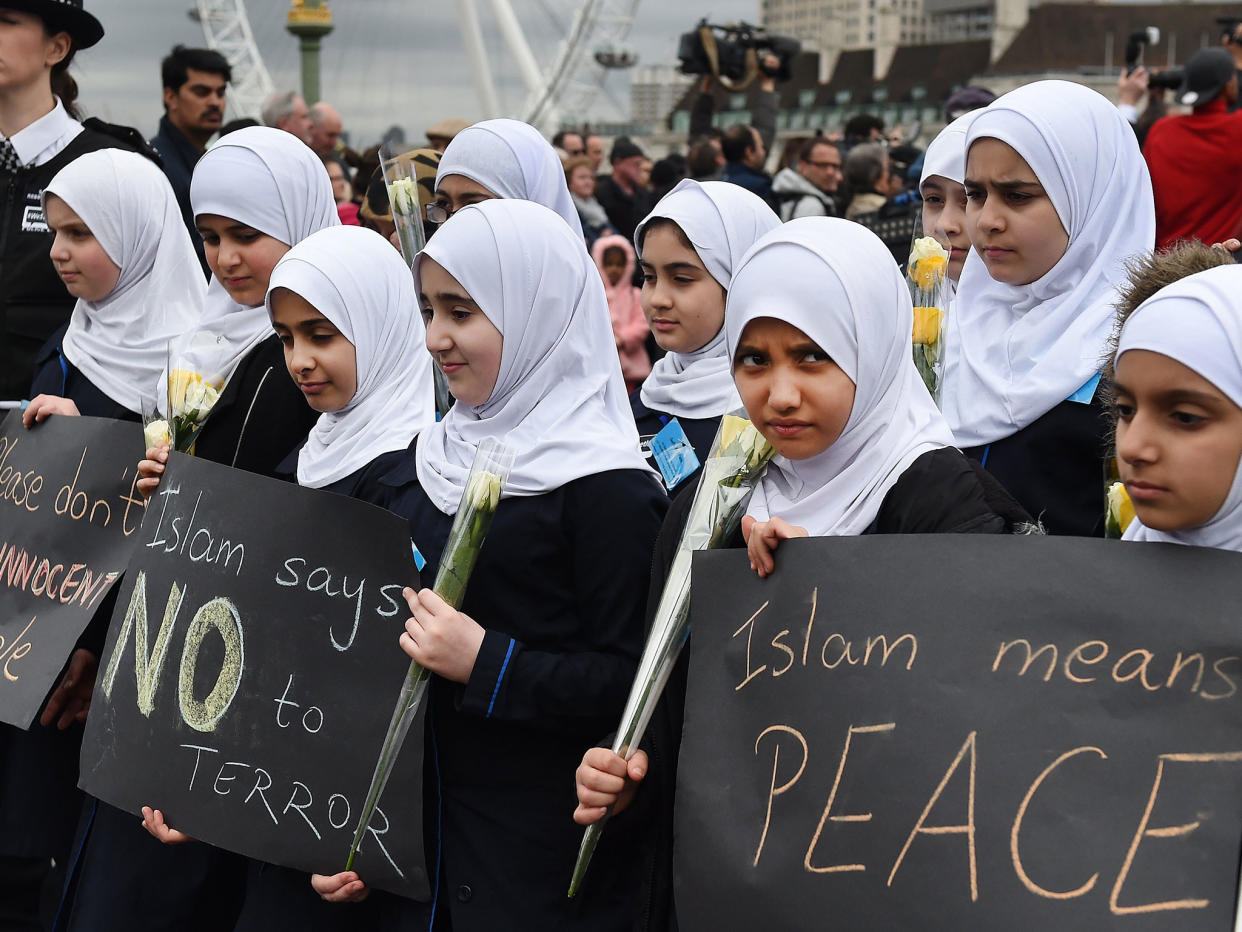This is how we can reclaim the British Muslim identity from extremists

Islamist extremism in Britain isn’t new. Back in the 1980s and 90s, the proselytisation for violent jihad by prominent ideologues at Muslim events was an open secret. Non-violent Islamist extreme groups like Hizb Ut Tahrir attracted thousands of young Muslims to their conferences, decrying western democracy, secularism and human rights, and calling instead for the establishment of a caliphate.
As a child of the Eighties, I remember this period well and ever since I was a teenager I have witnessed how such extremism first and foremost destroyed the lives of Muslims – their sense of identity and belonging, their prospects and even their families. It undoubtedly helped feed anti-Muslim prejudice and encouraged sectarianism amongst Muslims.
Unfortunately, since that time, the struggle against Islamist extremism has become even more potent. In 2000, MI5 discovered Britain’s first Islamist bomb factory; in the last three years they have managed to foil no less than 13 terror plots.
The rise and appeal of global terror groups are acutely felt here; approximately 1,000 people have travelled to Syria and Iraq, many seeking to join violent jihadist groups. Between 1998 and 2015 there have been 269 convictions for Islamist-related offences. Intolerance and extremism has erupted in violence as we saw last year with the brutal killing of Ahmadiyyah Muslim Asad Shah by Tanveer Ahmed. And Muhammad Syeedy, a 21-year-old Isis supporter from Rochdale, murdered 71-year-old imam Jalal Uddin.
These facts depressingly represent the tip of the iceberg. Online, the spread of Islamist beliefs is unprecedented. There are 54,000 searches each month in the UK alone for extremist material. Teenagers and children as young as 10 have been declaring their support for Isis. In some cases the authorities have had to deal with parents who have been found guilty of radicalising their own children. The challenge of Islamist extremism is anything but insignificant, and the damage done is immeasurable.
Yet despite this clear threat, public debate about Islamist extremism has become toxic and polarised. Entrenched black and white parochial positions, a common feature of our divided post-EU referendum society, predictably emerge.
On the one hand there are those who try to imply that all Muslims are de facto Islamists. Others go into denial mode, play down this reality and erroneously criticise those who dare raise the existence of Islamist extremism as “Islamophobia”.
Part of the reason for this is because both sides are guilty of homogenising British Muslims; terms like the “Muslim community” are woefully unhelpful, outdated and do a great disservice to the highly diverse and complex picture that exists among Britain’s three million Muslims. There quite simply is no single community. Yet when language is so important, this term is repeatedly used by politicians, the media and sometimes by Muslims themselves.
These entrenched positions cloud our inability to recognise the reality about British Muslims. We fail to recognise the emerging positive trend: how young Muslims are excelling and contributing in many fields, whether in the arts, music, politics, fashion, the arts and drama. They serve in the Armed Forces and the police, work in the NHS and, much to the displeasure of Islamists, are patriotic, rejecting wholesale the idea of an Islamic caliphate.
But there also exists a negative trend among some British Muslims, albeit smaller yet highly significant. When third generation British Muslims inspired by Islamist belief want to join Isis or seek to carry out attacks in London because of their hatred for Britain, hard questions about identity, integration and belonging need to be asked.
Too often, depending on one’s political agenda, there is an acknowledgement of one of those trends but not of the other when both clearly exist; this demonstrates the battle that is taking place among Muslims in defining a “British Islam”. Sadiq Khan’s embrace of democracy, human rights and love for Britain contrasts almost unrecognisably with that of fellow Londoner Abu Haleema who in typical Islamist fashion, while quoting verses from the Qur’an, decries Khan as a “kaffir”, precisely for holding such values. Despite being worlds apart in their viewpoints, both men claim legitimacy from Islam. In this fraught battle, I know whose version of a British Islam I would like to see dominate.
If we are to win this battle, we need to actively counter the propagation of extremist beliefs on satellite channels, on campus, online and in communities. We must find solutions to the many challenges that exist within and among Britain’s Muslims including strengthening and reforming of faith institutions and leadership.
Muslims must define what British Islam stands for: an ethical and moral religious framework which advocates for human rights and equality while weeding out hate, violence and discrimination. Likewise, confronting the wider obstacles facing Muslims in our country – socioeconomic and political issues, as well as widespread anti-Muslim discrimination – is vital. It’s important to remember that no one, apart from extremists, benefits from the presence of Islamist extremism in Britain.
Sara Khan is director of Inspire and author of ‘The Battle for British Islam: Reclaiming Muslim Identity from Extremism’ (Saqi Books.) Sara is speaking on the panel 'The Battle For British Islam' at Southbank Centre's Belief and Beyond Belief festival on Saturday 8 April

